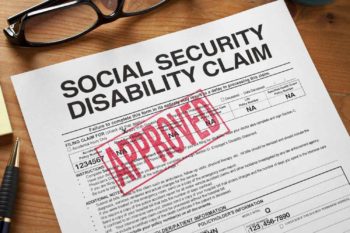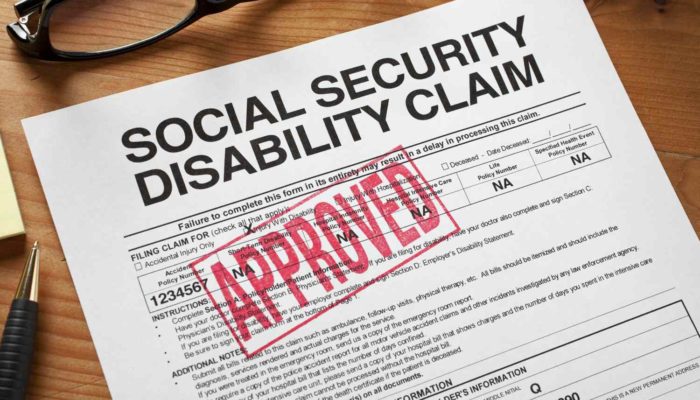 Although disability benefits are good news for many people you will find that the process is a long and difficult one. If you have serious liabilities, you likely cannot work and you are wondering just how you are going to pay your bills. SSD (social security disability) benefits are great financial assistance to help you. However SSA receives millions of applications every year and they initially deny far more than they approve. Do not give up if your SSD application is rejected at first. You can appeal, and many applicants go on to receive the SSD benefits they deserve. However, you must remember the process can be difficult and take more time before you receive the benefits you need. It takes Kentucky courage to fight for the SSD benefits you need and deserve.
Although disability benefits are good news for many people you will find that the process is a long and difficult one. If you have serious liabilities, you likely cannot work and you are wondering just how you are going to pay your bills. SSD (social security disability) benefits are great financial assistance to help you. However SSA receives millions of applications every year and they initially deny far more than they approve. Do not give up if your SSD application is rejected at first. You can appeal, and many applicants go on to receive the SSD benefits they deserve. However, you must remember the process can be difficult and take more time before you receive the benefits you need. It takes Kentucky courage to fight for the SSD benefits you need and deserve.
Initial Application
When filing for liability in Kentucky, you will have to provide several documents to prove you are eligible. Having them prepared can help expedite the process. The documents you may need to include: a birth certificate, proof of US citizenship, discharge papers from the US military if you served, W-2 forms, an adult disability report that provides detail about your condition, work history, medical record from your doctor, test results, proof of workers compensation benefits, pay stubs, personal information.
Disability Determination Process
A representative in your local SSD office will collect information by phone, mail, online, or in person. During the process, the SSA will determine if you are disabled according to their definition. You must also be unable to work for at least one year, or your condition is expected to end in death. Plus you must have also collected enough social security work credits, which are based on your yearly income. This evaluation is usually made by Disability Determination Services (DDS).
First Decision
The DDs will try to obtain evidence from your medical sources. If there is not enough to help them make a decision they will request you to have a consultative exam (CE). This CE will provide the SSA with any additional information they require. Your personal physician can conduct this CE but the DDS may reach out to an independent physician for the exam. If the DDS finds that you are disabled the SSA will complete the non-disability development if it is outstanding, calculate the amount of benefits you are to receive and begin paying those benefits. If the DDS finds that you are not disabled, the file is still sent to the field office where it will remain, in case you decide to appeal the decision.
Preparing An Appeal
If you are denied the first thing you should do is to prepare your appeal. Then speak to a Kentucky SSD attorney for help. The appeal process is long and complex and an attorney can help pursue a successful appeal. Your attorney may simply have you reorganize your facts to get a denial to overturn.
Appeal Deadline
When the SSA denies your application they will send a notice with a reason for the denial. The notice will tell you how long you have to appeal the decision. Generally, you will have 60 days from the date you receive the notice to appeal a decision.
Reconsideration Decision
You will have a completely new person to go over all the information of your initial application. The amount of time it takes to receive the reconsideration will depend on how quickly the new examiner receives the medical records and if they require additional questionnaires pertaining to your activities of daily living (ADLs). Additional CEs may also be necessary, which will take longer as well.
Deadline to Appeal for Hearing
If the application is still denied, you can take your case to the next phase of the appeals process, which is the hearing. The hearing takes place in front of an administrative law judge (ALJ). The ALJ will hear testimony from expert witnesses and you will also have a chance to speak about your disability. You will once again be given 60 days to decide if you want a hearing.
Preparing For a Hearing
By the time this hearing takes place, it will probably be nearly one year since your first application. You definitely want to be prepared for the hearing when the date comes. Collect new current medical records. The ALJ will want to see medical records that are up to date, and will not accept your old medical records to determine if you are disabled. the SSA is required to provide you with at least 75 days’ notice before your hearing to tell you the date of your hearing. This should give you plenty of time to have new MRIs, X-rays, or any other test, plus a new medical source statement from your doctor that you need to convince the ALJ that you need SSD benefits. The medical source should include activities you can no longer perform, such as sitting for more than 20 minutes or being unable to regularly lift a certain weight. Also, request your SSA file from the SSA and review it. Reviewing the file can help you prepare an argument that will give you a better chance of a decision being made in your favor after the hearing. By now you should have had an attorney that can prepare you for the hearing and represent you during it.
Things to expect during the hearing…
- You will be questioned by the judge
- An attorney is allowed to speak on your behalf
- You can expect expert witnessed to attend
- The ALJ will ask you questions about your disability
The ALJ will not usually give you a decision right away. You will typically get a decision within 30 days after the hearing unless there are extenuating circumstances involved.
Suffering a disability is difficult enough. You shouldn’t have to also go through an extremely long and difficult process to receive the benefits you need to pay your bills. However, if you want to receive SSD benefits that is exactly what you will need to do. A Kentucky disability lawyer can help, so don’t do it by yourself.
Contact us (859-341-2500) for a Free Consultation!
—
 About Grubbs & Landry
About Grubbs & Landry
At Grubbs & Landry, PLLC, we are dedicated to personal and friendly service. We manage our practice in an ethical, cost-effective manner to best help our clients resolve their legal issues with the least expense possible. We pride ourselves in advocating for our client in divorce, child custody, and child support matters as well as other family law matters. We are active in prosecuting personal injury cases-recovering for the injuries our clients sustain due to the negligence of others. Additionally, we help our clients prepare for the future through the preparation of Wills, Power of Attorney and Living Will.
>> Learn More

